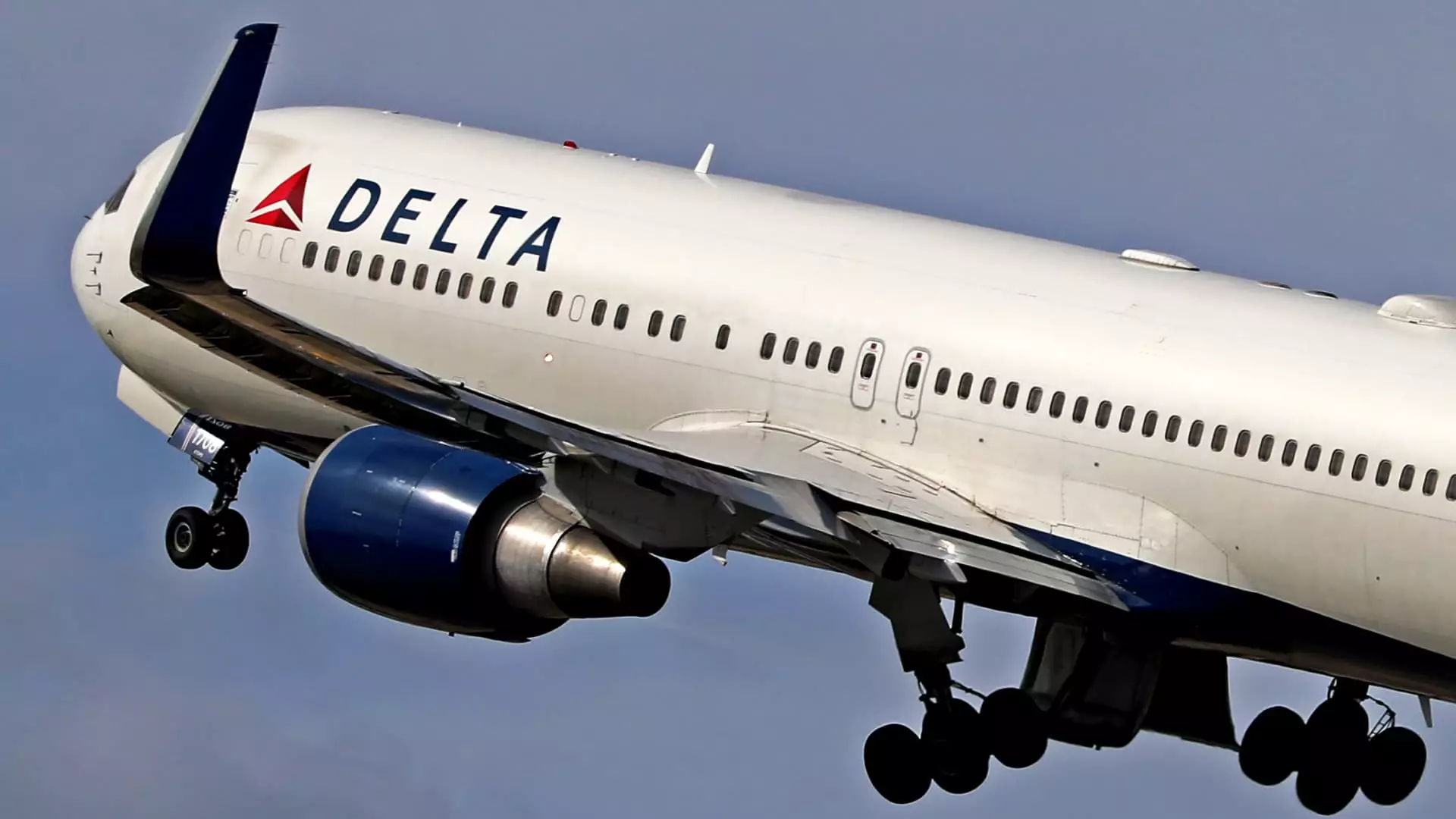In an unsettling turn of events, airline stocks have seen a sharp decline, causing significant worry for investors and the industry alike. The recent dip can be attributed not merely to seasonal fluctuations but rooted deep in the fabric of economic anxiety. Concerns over weakened consumer demand coupled with the specter of looming tariffs have triggered a downturn that industry leaders had, until recently, dismissed as unlikely. While fluctuations in stock prices are commonplace, the current sentiment seems to herald a more profound malaise, especially for heavily populated carriers like Delta Air Lines.
Market Reaction Exhibits Pessimism
On Thursday, shares of Delta dropped by more than 2% following a sobering downgrade from Jefferies, which advised a shift from a ‘buy’ to a ‘hold’ rating. Notably, their price target for the airline was halved to $46, reflecting deepening reservations about the robust profitability that Delta once enjoyed. This marks a pivotal moment, almost a canary in the coal mine indicating that larger economic currents are reshaping traveler behavior. The pessimistic outlook from Jefferies was not limited to Delta alone but extended to major players like American Airlines and Southwest Airlines, both of which face similar pressures. Southwest’s drop of over 5% underscores the extent of the crisis.
The Broader Economic Implications
An even grimmer reality emerges when we consider the broader economic indicators. Credit and debit card spending may have seen a modest rise year-over-year, but spending within the airline sector itself saw a downturn of 7.2%. This data point is critical; it signals that consumers are not merely tightening their belts but are genuinely hesitant to indulge in travel experiences. As household confidence dips, the ripple effect is palpable, serving as a stark reminder of the fragility of discretionary spending during tumultuous economic times. The Bank of America’s report indicates that this may stem from more than just economic fluctuations—weather events and seasonal timing also play crucial roles, but the underlying issue is unmistakably consumer wariness.
Industry Figures and the Surety of Change
Industry executives have noted a palpable slowdown in demand, emphasizing that it is not merely a blip but a significant shift. The vulnerability of the domestic travel market is particularly concerning, as it constitutes the backbone of revenue for these airlines. It raises the question: how sustainable is the traditional airline model in the face of evolving consumer attitudes? Delta’s leadership may argue that they’ve successfully tapped into higher-end travel markets, yet how long can this strategy endure if broader economic pressures continue to erode confidence?
The recent downturn in the NYSE Arca Airline Index—declining 18% in the first quarter—offers a grim assessment of the state of the airline industry, which has been caught off guard by a wave of uncertainty. As the sector braces for the impending earnings reports, many will be watching closely not merely for numbers but for insights that may signal the future trajectory of travel and tourism. If the fears about tariffs and consumer behavior are validated, we may well be witnessing the onset of a long, treacherous journey for an industry that has often been seen as a bellwether for the overall economy.

Leave a Reply